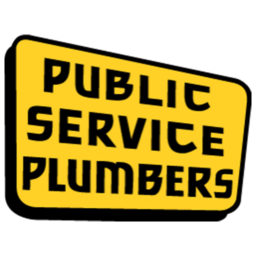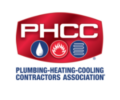Top-Rated DFW Plumbers Ready to Help with all Your Needs!
What are the most common plumbing problems?
The most common plumbing problems homeowners encounter include leaky faucets, clogged drains, running toilets, low water pressure, and water heater issues. While some of these problems can be fixed with basic DIY knowledge and tools, it’s important to call a professional plumber for complex or recurring issues to ensure they are properly addressed.
What are some common symptoms of issues with an interior plumbing drainage?
Common symptoms of issues with interior plumbing drainage include slow or clogged drains, gurgling noises coming from drains or toilets, foul odors emanating from drains, and water backups in sinks, tubs, or toilets. If you notice any of these symptoms, it’s advisable to contact a professional plumber to assess the situation and provide necessary repairs.
How can common plumbing problems be prevented?
To prevent common plumbing problems, regular maintenance is key. Ensure that you periodically inspect your plumbing system for leaks, drips, or any signs of damage. Avoid pouring grease, oil, or large food particles down the drains, as they can cause clogs. Use drain strainers to catch hair, soap residue, and other debris. Properly insulate exposed pipes during cold weather to prevent freezing and bursting. Additionally, scheduling routine professional inspections can help identify potential issues early on and save you from costly repairs down the line.
How can you tell if you have bad pipes at your house?
Identifying bad pipes in your house can be challenging, but there are some signs to watch out for. Look for discolored water, low water pressure in specific areas, recurring leaks, or a metallic taste in the water. If you notice any of these signs or suspect you have deteriorating or damaged pipes, it’s advisable to call a professional plumber who can assess the situation and provide the necessary repairs or replacements.
How do you know if your main pipe is clogged?
If you suspect a clog in your main pipe, several signs can indicate a problem. Slow drainage in multiple fixtures, gurgling noises coming from drains or toilets, or water backups in different areas of your house can be indicators of a clogged main pipe. In such cases, it’s crucial to contact a professional plumber promptly to prevent further damage to your plumbing system.
How do I know if my underground pipe is broken?
Detecting a broken underground pipe can be challenging, but there are a few signs to be aware of. Look for unexplained wet spots or pooling water in your yard, significant changes in the grass or vegetation growth patterns, or a foul odor near the affected area. If you suspect a broken underground pipe, it’s important to contact a professional plumber who specializes in detecting and repairing underground plumbing issues, as they have the necessary tools and expertise to assess and fix the problem.
What are signs that your sewer line is broken?
Signs that your sewer line is broken can include persistent sewer odor in your yard or home, slow drainage in multiple fixtures, gurgling sounds in drains or toilets, sewage backups or water pooling in the basement or yard, and lush, green patches of grass in the area where the sewer line runs. If you notice any of these signs, it’s crucial to contact a professional plumber immediately to assess and repair the broken sewer line.
Where does the drain system usually clog up?
The drain system can commonly clog up in areas such as kitchen sinks, bathroom drains, shower drains, and toilet drains. These areas are prone to clogs due to the accumulation of food debris, grease, soap scum, hair, and foreign objects. Regular maintenance, such as using drain strainers and avoiding pouring substances that can cause clogs down the drain, can help prevent blockages in these areas.
What is the quickest way to unblock a toilet?
The quickest way to unblock a toilet is by using a plunger. Ensure the plunger forms a tight seal around the drain opening, then push and pull it vigorously to create suction and dislodge the clog. If the plunger doesn’t work, refrain from using excessive force or resorting to other methods as they may cause further damage. In such cases, it’s best to contact a professional plumber who can safely and effectively clear the toilet blockage.
Can snaking a drain make a clog worse?
Snaking a drain can sometimes make a clog worse if not done correctly. While a drain snake can be a useful tool for clearing clogs, it’s important to use it with caution. If used improperly or too forcefully, a drain snake can damage pipes or push the clog deeper, making it more challenging to remove. It’s recommended to call a professional plumber who has the expertise and equipment to safely and effectively use a drain snake and address stubborn clogs.
How do you know if your main line is clogged?
If your main line is clogged, there are several signs to watch out for. Slow drainage in multiple fixtures, gurgling sounds coming from drains or toilets, water backups in various areas of your house (such as sinks, tubs, or toilets), and foul odors may indicate a clogged main line. If you suspect a clog in your main line, it’s crucial to contact a professional plumber promptly to prevent further damage and ensure proper clearing of the blockage.
Will baking soda and vinegar unclog a kitchen drain?
Baking soda and vinegar can help unclog a kitchen drain to some extent, but they may not be effective for severe or stubborn clogs. The combination of baking soda and vinegar can create a foaming reaction that helps break down grease and organic matter in the drain. However, this method is most suitable for regular maintenance or mild clogs. For more stubborn clogs, it’s advisable to contact a professional plumber who can use specialized tools and techniques to clear the drain effectively and prevent any potential damage to the plumbing system.
Can you test for a gas leak?
It is not recommended for homeowners to personally test for a gas leak. Gas leaks can be dangerous and should be handled by professionals. If you suspect a gas leak, immediately evacuate the premises and contact your gas utility provider or a licensed plumber who specializes in gas line repairs. They have the necessary equipment and expertise to accurately detect and address gas leaks safely.
Should I smell gas from a gas line?
No, you should not smell gas from a gas line. Natural gas is odorless, but gas utility providers add a distinct odorant called mercaptan to give it a rotten egg-like smell. This odor is purposely added to help people detect gas leaks easily. If you smell gas, it’s essential to treat it as a potential gas leak and take immediate action by evacuating the area and contacting a professional to assess and repair the gas line.
Can you have a gas leak without knowing?
Yes, it is possible to have a gas leak without knowing. Some gas leaks can occur in concealed areas or underground, making them difficult to detect through smell alone. Additionally, certain types of gas leaks may be small or slow, which can make it harder to notice any noticeable odor or symptoms. It’s important to be vigilant and keep an eye out for other signs such as hissing sounds near gas lines, dead vegetation in the vicinity of gas pipes, or unexplained increases in gas bills. If you suspect a gas leak, it’s crucial to contact a professional immediately for a thorough inspection.
Will a carbon monoxide detector detect a gas leak?
No, a carbon monoxide (CO) detector will not detect a gas leak. Carbon monoxide detectors are specifically designed to detect the presence of carbon monoxide gas, which is a byproduct of incomplete combustion. They are not designed to detect natural gas leaks. For gas leak detection, it’s essential to use specialized equipment and methods, such as gas leak detectors or professional inspection tools, to ensure accurate detection and proper repairs.
Should I turn water off if I have a slab leak?
If you have a slab leak, it’s advisable to turn off the water supply to prevent further damage. Slab leaks occur when pipes underneath the concrete foundation of a house develop leaks. This can lead to water damage, structural issues, and increased water bills. Turning off the water supply can help minimize the potential damage and water loss until a professional plumber can assess and repair the slab leak.
How long does a slab leak take to fix?
The duration to fix a slab leak can vary depending on factors such as the location and severity of the leak, accessibility to the affected pipes, and the extent of necessary repairs. In some cases, a slab leak can be resolved within a day or two, while more complex situations may require several days or even weeks to complete the repairs. It’s best to consult with a professional plumber who can assess the specific situation and provide a more accurate estimate of the repair timeline.
How serious is a slab leak?
A slab leak is a serious issue that should not be ignored. It refers to a water leak that occurs in the water pipes beneath the concrete foundation of a house. If left unaddressed, a slab leak can lead to significant water damage, foundation problems, increased water bills, and even mold growth. It’s crucial to promptly address and repair slab leaks to prevent further damage and mitigate potential risks.
Can a slab leak flood your house?
Yes, a slab leak has the potential to flood your house. If a slab leak becomes severe or goes unnoticed for an extended period, it can result in significant water accumulation underneath the foundation. This water can eventually find its way into your living spaces, causing flooding and extensive damage to your home’s structure, flooring, and belongings. Timely detection and repair of slab leaks are vital to prevent such scenarios.
Does home warranty cover slab leaks?
Whether a home warranty covers slab leaks or not depends on the specific terms and conditions of the warranty. It’s important to review your home warranty policy carefully to determine if slab leaks are covered. Some home warranty plans may include coverage for plumbing system leaks, while others may exclude coverage for pre-existing conditions or specific types of leaks. It’s recommended to consult your home warranty provider directly to understand the coverage details for slab leaks.
Do slab leaks cause mold?
Slab leaks can contribute to the development of mold under certain circumstances. When a slab leak occurs, moisture from the leaking pipes can seep into the surrounding materials, such as drywall or flooring. This excess moisture creates an ideal environment for mold growth. If left unaddressed, mold can spread and pose health risks. Promptly repairing the slab leak and addressing any water damage can help prevent or mitigate mold growth.
How long does plumbing last in a slab foundation?
The lifespan of plumbing in a slab foundation can vary depending on various factors, such as the quality of installation, the type of pipes used, and the maintenance provided. Generally, copper pipes installed in a slab foundation can last around 50 to 70 years, while PEX (cross-linked polyethylene) pipes have an estimated lifespan of 40 to 50 years. Regular inspections, maintenance, and addressing issues promptly can help extend the lifespan of plumbing in a slab foundation.
Why does my toilet keep running?
A toilet that keeps running is often due to a faulty flapper valve or a problem with the fill valve. The flapper valve, which controls the water flow from the tank to the bowl, may become worn, misaligned, or damaged, causing water to continuously leak into the bowl. Similarly, the fill valve, responsible for refilling the tank after each flush, can malfunction, resulting in constant water flow. In either case, it’s advisable to inspect and potentially replace the faulty components or seek the assistance of a professional plumber to resolve the issue.
What cannot be put down a garbage disposal?
Certain items should not be put down a garbage disposal to avoid potential damage. These include hard items like bones, fruit pits, or shells, fibrous materials like corn husks or celery stalks, grease or cooking oil, coffee grounds, and starchy foods like pasta or rice. These items can clog the disposal, damage the blades, or cause blockages in the plumbing system. It’s best to dispose of such items in the trash or compost them instead.
What can ruin a garbage disposal?
Several things can ruin a garbage disposal. Putting non-food items, such as metal, glass, or plastic, into the disposal can damage the blades and motor. Additionally, pouring harsh chemicals or drain cleaners down the disposal can corrode the components and cause malfunctions. Similarly, overwhelming the disposal with large quantities of food waste at once can strain the motor and lead to breakdowns. It’s important to use the garbage disposal properly and avoid anything that can cause damage or clogs.
How long do garbage disposals last?
The lifespan of a garbage disposal can vary depending on factors such as usage, maintenance, and quality of the unit. On average, a well-maintained garbage disposal can last around 10 to 15 years. However, with proper care and usage, some high-quality models can last even longer. Regular maintenance and avoiding improper usage can help extend the lifespan of a garbage disposal.
What makes a garbage disposal go out?
Several factors can cause a garbage disposal to go out or stop working. Common causes include motor failure, electrical issues, mechanical malfunctions, and damage to the blades or internal components. Overloading the disposal with excessive food waste or putting inappropriate items down the drain, such as hard objects or fibrous materials, can also contribute to the disposal going out. If a garbage disposal stops functioning, it’s recommended to check for tripped breakers, reset buttons, or consult a professional plumber to diagnose and address the issue.
Does a garbage disposal need to be cleaned out?
Yes, a garbage disposal can benefit from regular cleaning. Food particles, grease, and other debris can accumulate over time, leading to unpleasant odors and potential clogs. To clean a garbage disposal, you can run a mixture of ice cubes and rock salt through it to help remove debris and freshen the unit. Additionally, periodically grinding citrus peels or using a baking soda and vinegar solution can help eliminate odors. However, it’s important to follow the manufacturer’s instructions and avoid using harsh chemicals that can damage the disposal.
Do garbage disposals get clogged?
Yes, garbage disposals can get clogged. Improper usage or putting items down the disposal that it’s not designed to handle can lead to clogs. Items like large bones, fibrous materials, grease, coffee grounds, or starchy foods can cause blockages in the disposal or the plumbing system. If a garbage disposal becomes clogged, it’s recommended to turn off the unit, avoid using it further, and attempt to clear the clog using appropriate methods like using a plunger or an Allen wrench. If the clog persists, it’s advisable to contact a professional plumber to avoid further damage or injury.
Why is my garbage disposal humming but not running?
If your garbage disposal is humming but not running, it typically indicates a jammed or stuck impeller. The humming sound is often the motor trying to turn the impeller but facing resistance. To address this issue, first, ensure the disposal is turned off. Then, use a hex key or an Allen wrench inserted into the bottom of the disposal to manually rotate the impeller and dislodge any obstructions. Once cleared, remove the wrench and restore power to the disposal. If the humming persists, it’s advisable to consult a professional plumber for further inspection and repair.
How do I increase water pressure in my house?
Increasing water pressure in your house can be achieved through several methods. First, check the water pressure regulator, which is usually located near the main water shutoff valve. Adjusting the regulator can help increase the water pressure. Additionally, removing any sediment or debris from faucet aerators and showerheads, as well as cleaning or replacing clogged filters or cartridges in the plumbing system, can enhance water flow and pressure. If these steps don’t improve the water pressure, it’s recommended to consult a professional plumber to assess and address the issue.
Can a bad water heater cause low water pressure?
Yes, a bad water heater can cause low water pressure. A faulty water heater can result in reduced water flow throughout the house, leading to low water pressure in faucets, showers, and other fixtures. Issues like a clogged inlet valve, a malfunctioning pressure reducing valve, sediment buildup, or a failing water heater pump can all contribute to low water pressure. If you suspect that your water heater is causing low water pressure, it’s advisable to contact a professional plumber to inspect and repair the water heater or recommend appropriate solutions.
Why is my shower water pressure low?
Low water pressure in the shower can have various causes. Some common reasons include mineral buildup in showerhead or faucet aerators, clogged or deteriorating pipes, a malfunctioning pressure regulator, or a problem with the municipal water supply. Checking and cleaning the showerhead or aerator, ensuring all shut-off valves are fully open, and inspecting for any visible leaks or pipe damage are initial steps to take. If the issue persists or if low water pressure is experienced throughout the house, it’s recommended to consult a professional plumber to diagnose and address the underlying cause.






